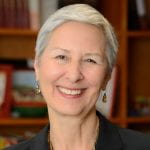Friday, April 30, 2021
9 a.m. – 10:30 a.m. EDT
via Zoom
The Institute for International Economic Policy and the GW Elliott School of International Affairs Book Launch Series was pleased to invite you to a book launch discussion of Prof. Stephen B. Kaplan’s Globalizing Patient Capital: The Political Economy of Chinese Finance in the Americas (Cambridge University Press).
China’s overseas financing is a distinct form of “patient capital” that marshals the country’s vast domestic resources to create commercial opportunities internationally. Its long-term risk tolerance and lack of policy conditionality has allowed developing economies to sidestep the fiscal austerity tendencies of Western markets and multilaterals. Professor Stephen B. Kaplan will discuss his new book, Globalizing Patient Capital: The Political Economy of Chinese Finance in the Americas, which examines China’s state-led capitalism, and the costs and benefits of state versus market approaches to development. In the talk, Professor Kaplan explores how patient capital affects national-level governance across the Americas and beyond, including how Chinese leaders might react to developing nation’s ongoing struggles with debt and dependency.
The book launch was also part of our 13th annual Conference on China’s Economic Development and U.S.-China Economic Relations. The conference took place as a virtual series. This conference was co-sponsored by the Sigur Center for Asian Studies, the GW Center for International Business Education and Research, the Latin American & Hemispheric Studies Program (LAHSP) at GW, the GW Department of Political Science, and the Elliott School Book Launch Series.
Meet the Speaker:
 Stephen Kaplan is an Associate Professor of Political Science and International Affairs. Professor Kaplan’s research and teaching interests focus on the frontiers of international and comparative political economy, where he specializes in the political economy of global finance and development, the rise of China in the Western Hemisphere, and Latin American politics.
Stephen Kaplan is an Associate Professor of Political Science and International Affairs. Professor Kaplan’s research and teaching interests focus on the frontiers of international and comparative political economy, where he specializes in the political economy of global finance and development, the rise of China in the Western Hemisphere, and Latin American politics.
Professor Kaplan joined the GWU faculty in the fall of 2010 after completing a postdoctoral research fellowship at the Niehaus Center for Globalization and Governance at Princeton University and his Ph.D at Yale University. While at Yale, Kaplan also worked as a researcher for former Mexican President Ernesto Zedillo at the Yale Center for the Study of Globalization. Prior to his doctoral studies, Professor Kaplan was a senior economic analyst at the Federal Reserve Bank of New York, writing extensively on developing country economics, global financial market developments, and emerging market crises from 1998 to 2003.
Meet the Discussants:
 Professor Carol Wise, Department of Political Science and International Relations, University of Southern California (USC), has written widely on trade integration, exchange rate crises, institutional reform, and the political economy of market restructuring in the Latin American region. Wise is author of the book, Dragonomics: How Latin America is Maximizing (or Missing Out) on China’s International Development Strategy (Yale University Press, 2020), which received USC’s Phi Kappa Phi Faculty Recognition Award in 2021 and the Luciano Tomassini 2021 Award-Honorable Mention for the Best Book on International Relations from the Latin American Studies Association. Professor Wise’s most recent journal articles include: “Playing both Sides of the Pacific: Latin America’s Free Trade Agreements (FTAs) with China,” Pacific Affairs (2016); “Conceptualizing China-Latin America Relations in the 21 st Century” (with Victoria Chonn Ching), The Pacific Review (2017); and, “International Trade Norms in the Age of Covid-19” (with Nicolas Albertoni), Fudan Humanities and Social Science Journal (2020). Professor Wise has held Fulbright Grants to Canada, Mexico, and Peru. She is a member of the core social science faculty at Renmin University’s annual International Summer Program, Beijing. In 2019, Wise was the Fulbright-Masaryk University Distinguished Chair in the Czech Republic. Her latest research compares the political economy of development in Latin America and Central/Eastern Europe.
Professor Carol Wise, Department of Political Science and International Relations, University of Southern California (USC), has written widely on trade integration, exchange rate crises, institutional reform, and the political economy of market restructuring in the Latin American region. Wise is author of the book, Dragonomics: How Latin America is Maximizing (or Missing Out) on China’s International Development Strategy (Yale University Press, 2020), which received USC’s Phi Kappa Phi Faculty Recognition Award in 2021 and the Luciano Tomassini 2021 Award-Honorable Mention for the Best Book on International Relations from the Latin American Studies Association. Professor Wise’s most recent journal articles include: “Playing both Sides of the Pacific: Latin America’s Free Trade Agreements (FTAs) with China,” Pacific Affairs (2016); “Conceptualizing China-Latin America Relations in the 21 st Century” (with Victoria Chonn Ching), The Pacific Review (2017); and, “International Trade Norms in the Age of Covid-19” (with Nicolas Albertoni), Fudan Humanities and Social Science Journal (2020). Professor Wise has held Fulbright Grants to Canada, Mexico, and Peru. She is a member of the core social science faculty at Renmin University’s annual International Summer Program, Beijing. In 2019, Wise was the Fulbright-Masaryk University Distinguished Chair in the Czech Republic. Her latest research compares the political economy of development in Latin America and Central/Eastern Europe.
 Roselyn Hsueh is an Associate Professor of Political Science at Temple University in Philadelphia, where she codirects the Certificate in Political Economy. She is the recipient of the Fulbright Global Scholar Award for research in India, Mexico, and Russia. Her next book, Micro-Institutional Foundations of Capitalism: Sectoral Pathways to Globalization in China, India, and Russia, is under contract with Cambridge University Press. She is the author of China’s Regulatory State: A New Strategy for Globalization (Cornell, 2011), and scholarly articles and book chapters. BBC World News, The Economist, Foreign Affairs, National Public Radio, The Washington Post, and other media outlets have featured her research. She has testified before the U.S.-China Economic and Security Review Commission and consulted for The Center for Strategic and International Studies. Dr. Hsueh has served as a Global Order Visiting Scholar at the University of Pennsylvania, member of the Georgetown Initiative for U.S.-China Dialogue on Global Issues, and Residential Research Faculty Fellow at U.C. Berkeley. She also lectured as a Visiting Professor at Tecnológico de Monterrey in Mexico. She held the Hayward R. Alker Postdoctoral Fellowship at the University of Southern California and conducted international fieldwork in China, Japan, and Taiwan as a U.S. Fulbright Scholar and David L. Boren National Security Fellow. She earned her B.A. and doctorate in Political Science from the University of California, Berkeley.
Roselyn Hsueh is an Associate Professor of Political Science at Temple University in Philadelphia, where she codirects the Certificate in Political Economy. She is the recipient of the Fulbright Global Scholar Award for research in India, Mexico, and Russia. Her next book, Micro-Institutional Foundations of Capitalism: Sectoral Pathways to Globalization in China, India, and Russia, is under contract with Cambridge University Press. She is the author of China’s Regulatory State: A New Strategy for Globalization (Cornell, 2011), and scholarly articles and book chapters. BBC World News, The Economist, Foreign Affairs, National Public Radio, The Washington Post, and other media outlets have featured her research. She has testified before the U.S.-China Economic and Security Review Commission and consulted for The Center for Strategic and International Studies. Dr. Hsueh has served as a Global Order Visiting Scholar at the University of Pennsylvania, member of the Georgetown Initiative for U.S.-China Dialogue on Global Issues, and Residential Research Faculty Fellow at U.C. Berkeley. She also lectured as a Visiting Professor at Tecnológico de Monterrey in Mexico. She held the Hayward R. Alker Postdoctoral Fellowship at the University of Southern California and conducted international fieldwork in China, Japan, and Taiwan as a U.S. Fulbright Scholar and David L. Boren National Security Fellow. She earned her B.A. and doctorate in Political Science from the University of California, Berkeley.
Meet the Moderator:
 Jay Shambaugh is Professor of Economics and International Affairs, and Co- Director of the Institute for International Economic Policy at the Elliott School of International Affairs, George Washington University. His area of research is macroeconomics and international economics. He has had two stints in public service. He served as a Member of the White House Council of Economic Advisors from 2015-2017. Earlier, he served on the staff of the CEA as a Senior Economist for International Economics and then as the Chief Economist. He also spent 3 years as the Director of the Hamilton Project at the Brookings Institution. Jay is also a Faculty Research Fellow at the NBER and Non-Resident Senior Fellow in Economic Studies at Brookings. Prior to joining the faculty at George Washington, Jay taught at Georgetown and Dartmouth and was a visiting scholar at the IMF. He received his Ph.D. in economics from the University of California at Berkeley, an M.A. from the Fletcher School at Tufts, and a B.A. from Yale University.
Jay Shambaugh is Professor of Economics and International Affairs, and Co- Director of the Institute for International Economic Policy at the Elliott School of International Affairs, George Washington University. His area of research is macroeconomics and international economics. He has had two stints in public service. He served as a Member of the White House Council of Economic Advisors from 2015-2017. Earlier, he served on the staff of the CEA as a Senior Economist for International Economics and then as the Chief Economist. He also spent 3 years as the Director of the Hamilton Project at the Brookings Institution. Jay is also a Faculty Research Fellow at the NBER and Non-Resident Senior Fellow in Economic Studies at Brookings. Prior to joining the faculty at George Washington, Jay taught at Georgetown and Dartmouth and was a visiting scholar at the IMF. He received his Ph.D. in economics from the University of California at Berkeley, an M.A. from the Fletcher School at Tufts, and a B.A. from Yale University.





